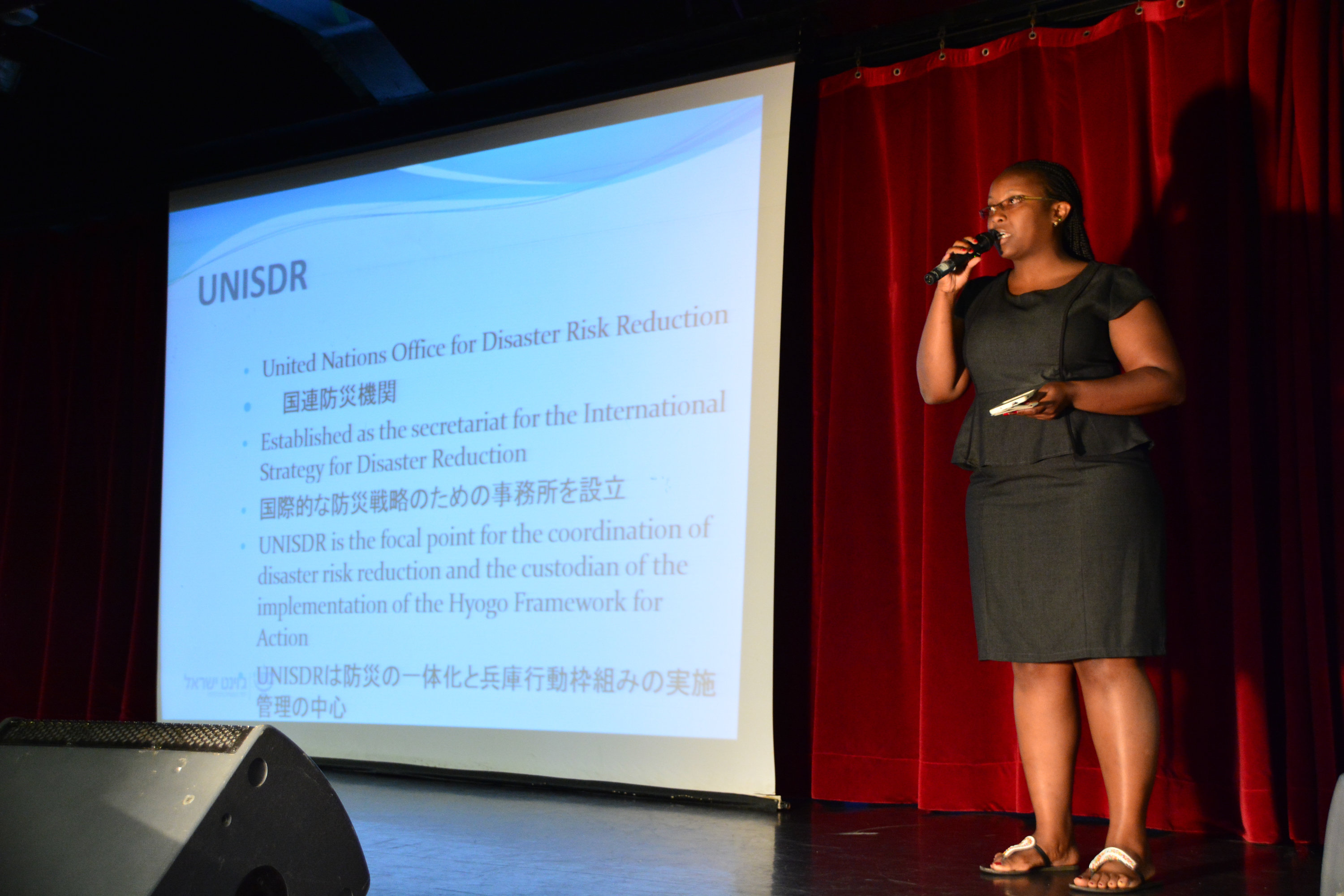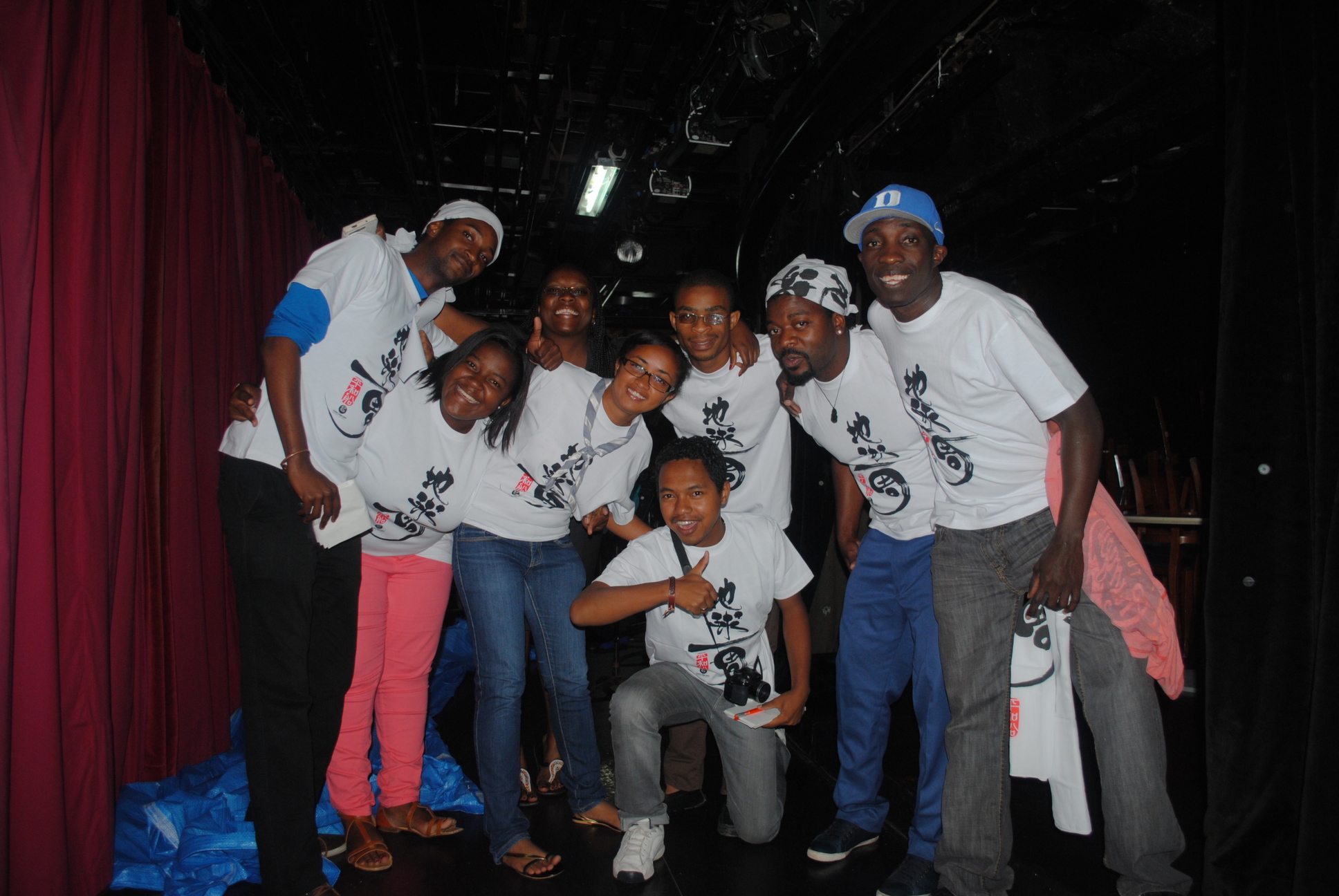Africa Resilient Youth and the “Ocean Dream Declaration”
Between December 18– 23, Peace Boat partnered with the United Nations Office for Disaster Risk Reduction (UNISDR) to carry out the “Disaster Risk Reduction and Resilience Building for Youth Leaders in Africa” Programme.
Six exceptional young leaders from Madagascar, Mozambique & South Africa, along with 2 United Nations-related special guests from Kenya, joined us onboard as the ship sailed from Mozambique to South Africa. (Read their profiles here).
Combining workshops, seminars, presentations and a field visit, we explored some of the most pressing issues in Disaster Risk Reduction, and identified ways in which youth can take a leading role in making communities more resilient.
Field Visit – Maputo, Mozambique (19 December)
The participants took part in a field visit in Maputo on the first day of the programme, organised in partnership with local organisations IVERCA and DANBO. 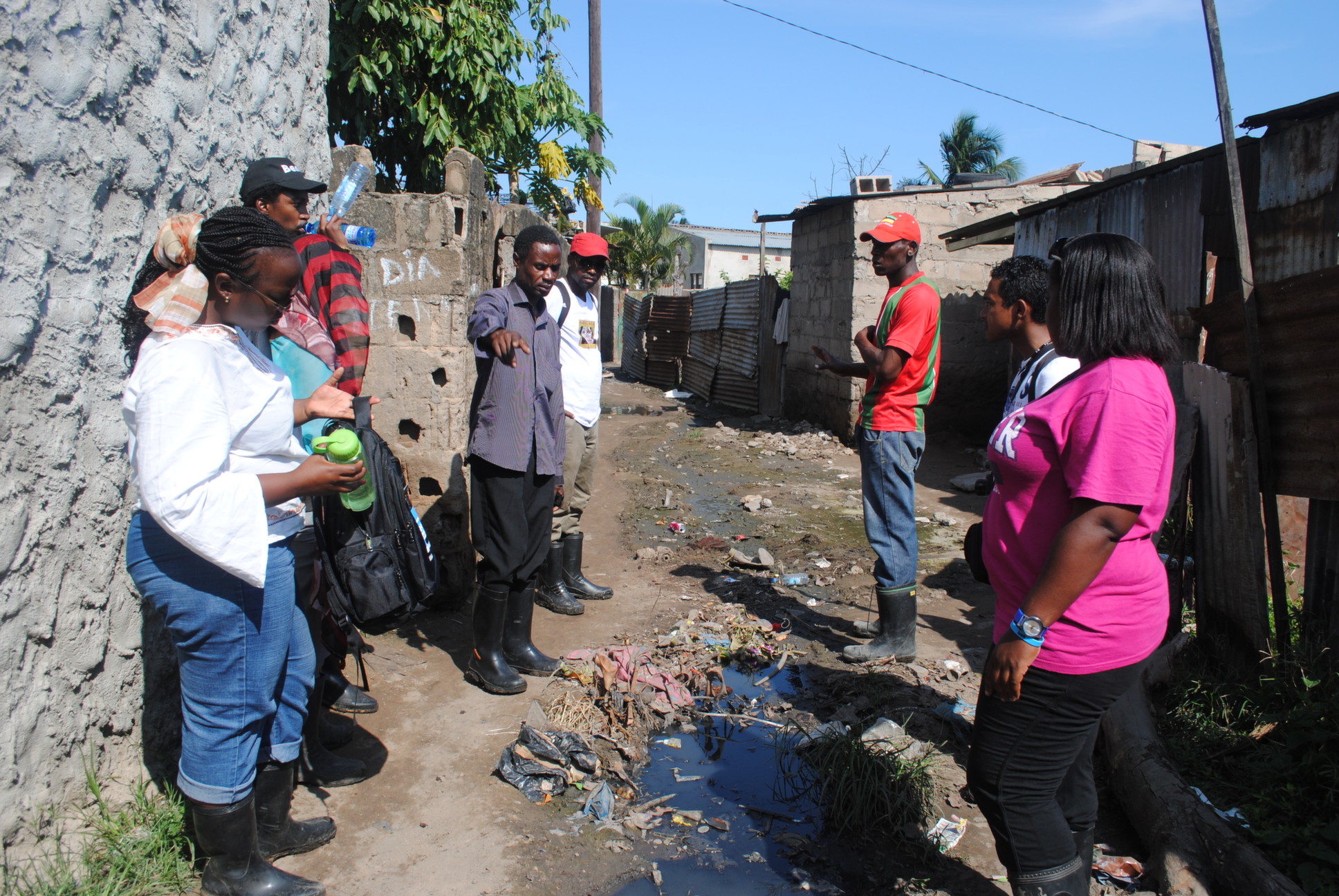
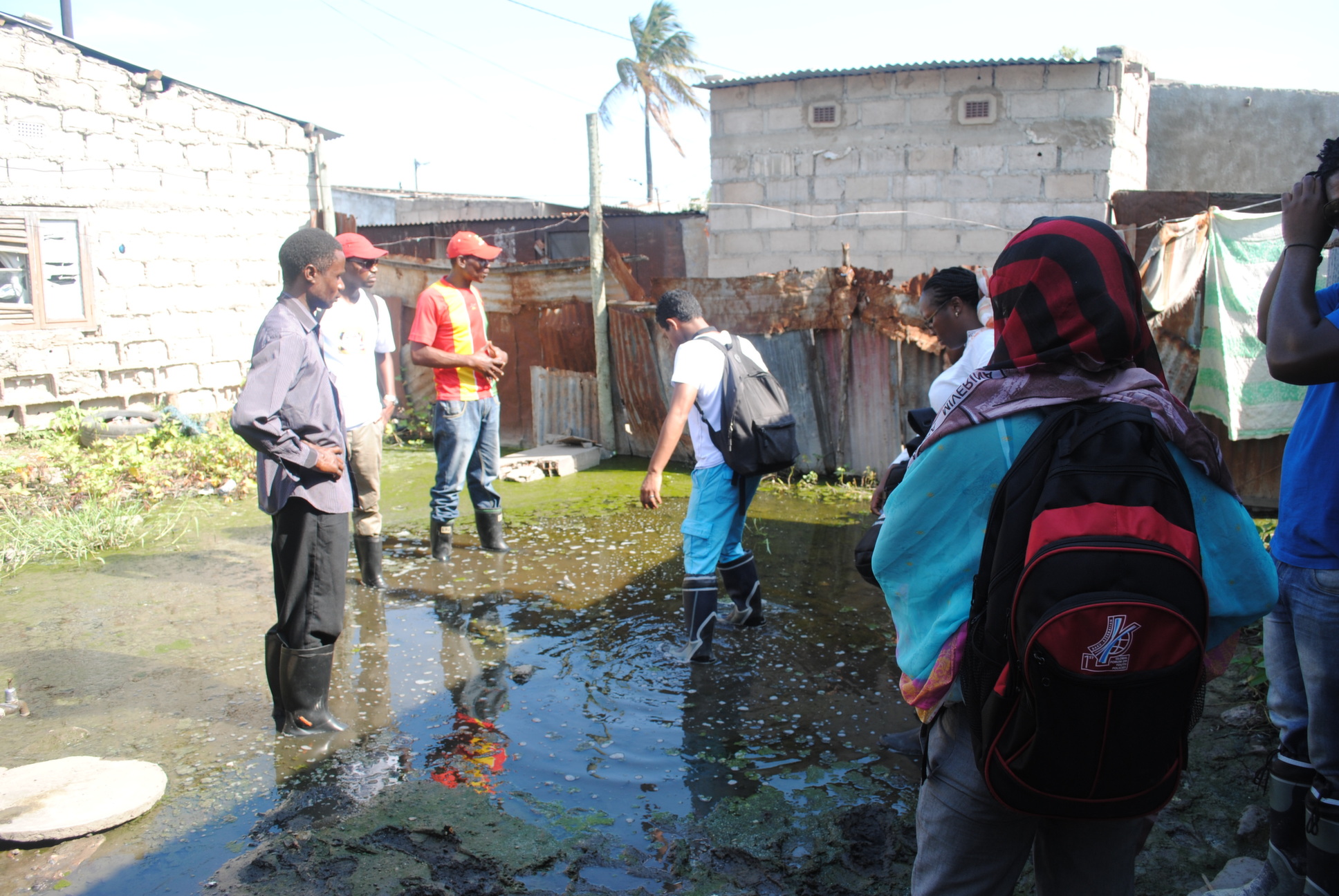
Ivan Laranjeira, President of IVERCA, and community members showed the group around the Mafalala district of Maputo, Mozambique. This informal settlement, despite its rich cultural and historical significance, struggles to cope with natural hazards due to a lack of resources.
As the participants visited homes and public spaces in the district, some of the health and sanitation issues that arise as a result of flooding were brought to light. After storms, mud and debris clog the drainage systems, leading to flooding and other subsequent challenges, such as the spread of water-borne diseases and damage to homes, which in turn affect children and their ability to attend school.
The participants experienced first-hand some of the cross-cutting themes that relate to Disaster Risk Reduction, including the links between disasters and sanitation, water, education and sustainable development.
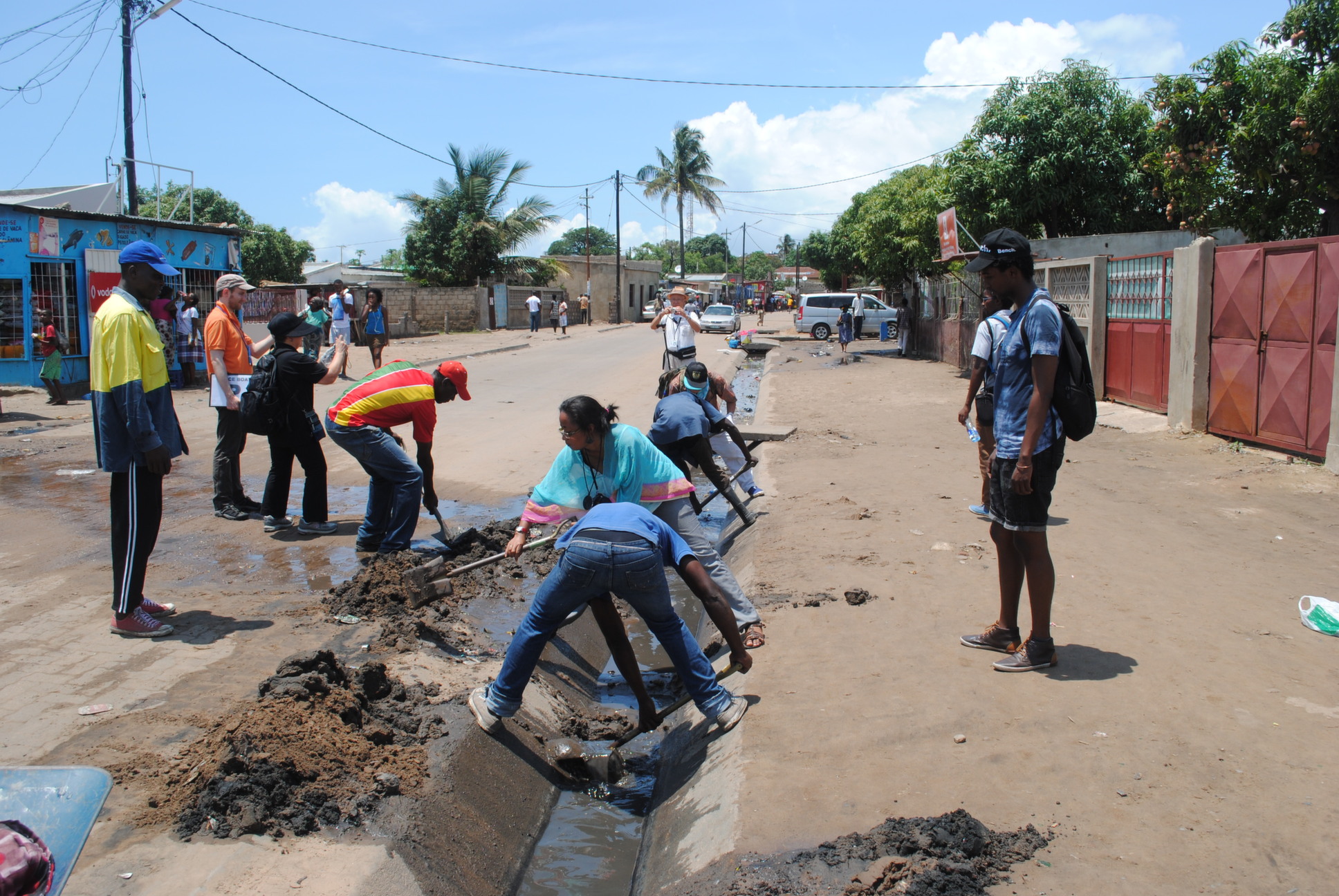
During the morning, the participants helped NGO DANBO, headed by local leader Gulamo Mose, clean out the district’s drains to lessen the impacts of heavy rain.
Ivan explains how conducting educational tours and bringing people from the outside into this area helps to create livelihoods and change the perception of an area that is traditionally considered “dangerous” and “under-privileged”. Ivan and Gulamo also serve as perfect examples of young leaders making an impact in bringing their community together and enhancing resilience through innovative projects.
Onboard Peace Boat’s 86th Global Voyage (19 December – 23 December)
Peace Boat departed Maputo port on 19th December, traversed part of the Indian Ocean, and arrived in Cape Town on 23rd December.
With only a few days at sea, the schedule was packed with workshops, seminars, events and presentations.The participants, from diverse personal and professional backgrounds, shared best practices and lessons learnt related to DRR, creating a collaborative learning experience onboard. Through many interactive sessions, the participants learnt both core theory and practical tools that they can apply in their home countries.
The facilitators and trainers covered a range of topics, including “Youth and DRR”, “Risk-sensitive Tourism”, “Cross-Cutting themes in DRR”, “Lessons Learnt from the 2011 Great East Japan Earthquake” and “The Making Cities Resilient Campaign and Local Government Self-Assessment Tool”.
Ms. Isabel Njihia, Information Management Analyst from UNISDR Regional Office for Africa, introduces the UNISDR and the “Making Cities Resilient” campaign. 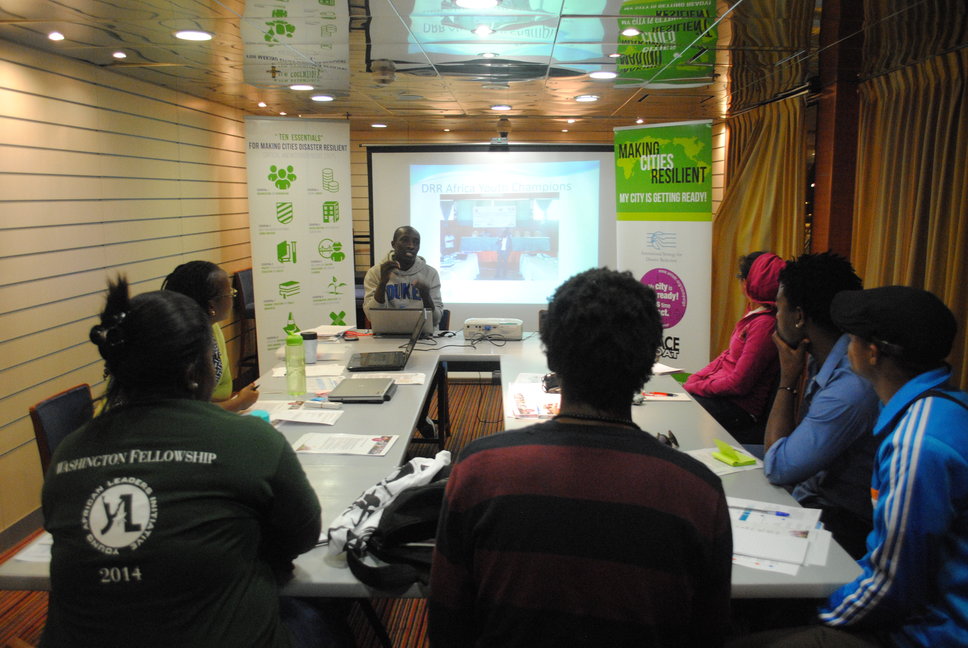
Mr. Raphael Obonyo, DRR Africa Youth Champions Coordinator and Africa Representative to the World Bank’s Global Coordination Board of Global Youth Anti-Corruption Network, delivers a talk on Youth and DRR.
A PBV representative also shared lessons learnt from the 2011 Great East Japan Earthquake and how they can be applied in other countries.
Whilst most of these were “closed sessions”, there were a number of chances for the participants to interact with the other 800 passengers onboard. For example, the participants took part in a cultural exchange with passengers, and were introduced to a number of Japanese traditions. 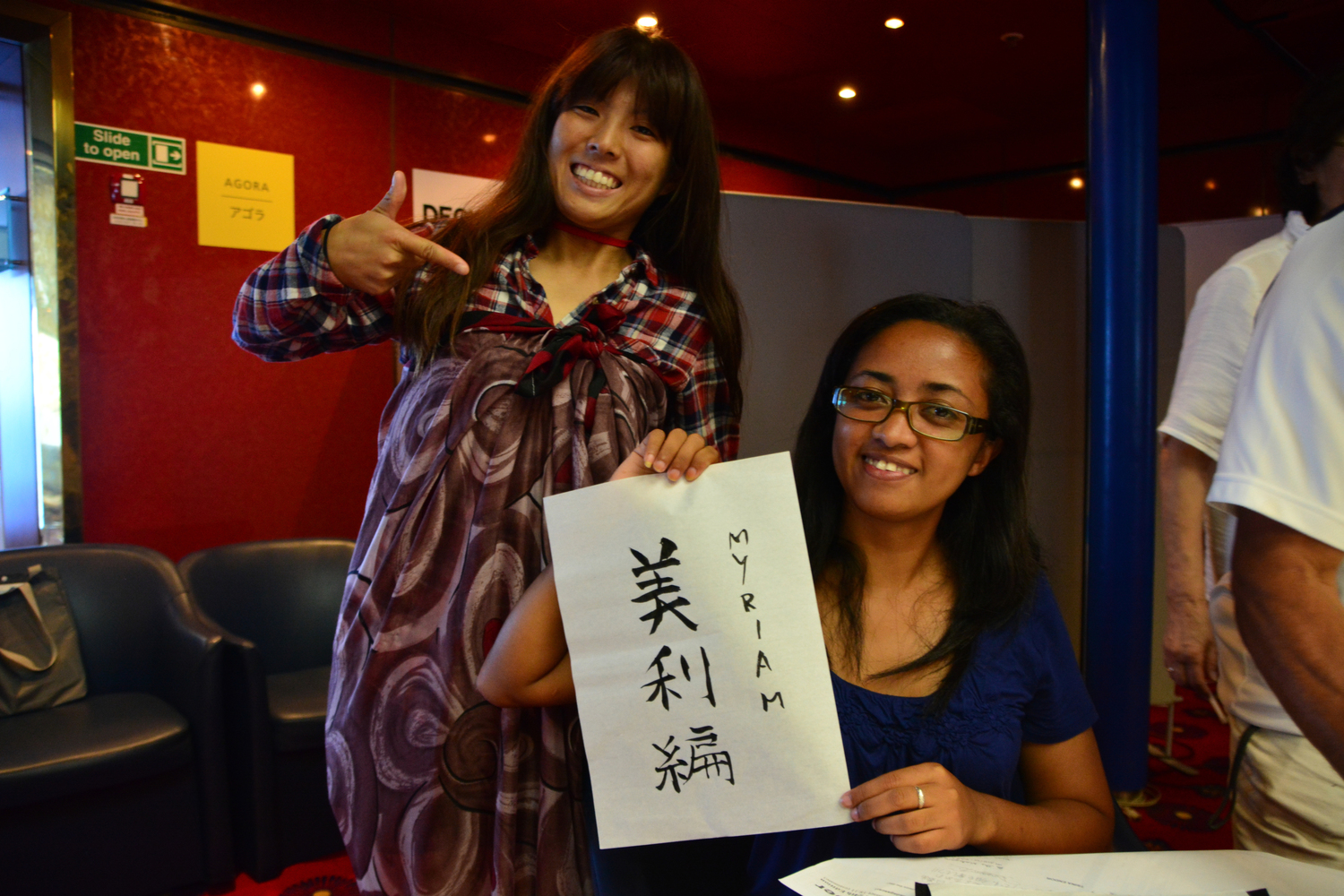
The youth leaders also made a group presentation at the main venue on the last day onboard, to present what they had learnt from the programme and to announce their commitments after returning home.
Despite the major differences in their backgrounds (for example, participants came from English, Portuguese and French-speaking countries), over the course of just 3 days at sea, the participants grew extremely close.
Press Conference & Symposium in Cape Town (23 December)
After an intense and enjoyable few days at sea, we were joined by representatives from Cape Town City Office and the City’s Disaster Management Centre for a symposium/press conference.
Councillor Garreth Bloor, Cape Town City Mayoral Committee Member for Tourism, Events and Economic Development, offered opening remarks.
Mr. Greg Pillay, Manager of Cape Town City’s Disaster Risk Management Centre, then spoke about his centre’s work and its achievements. Cape Town is South Africa’s first “Role Model” city of the UNISDR’s Making Cities Resilient Campaign.
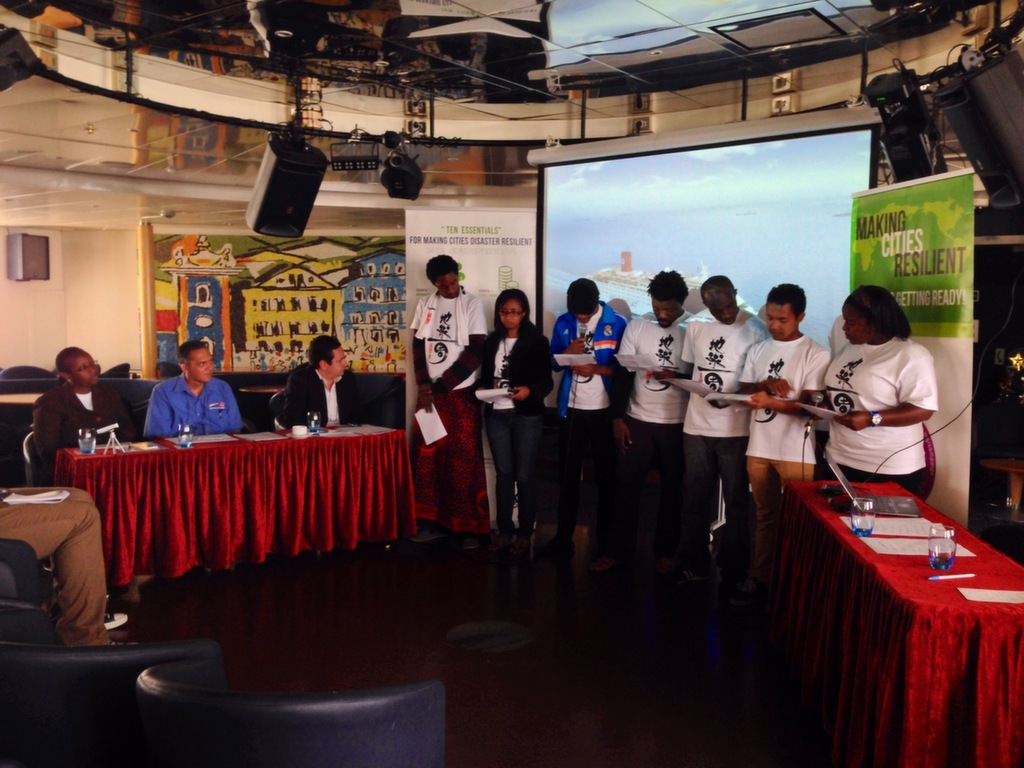
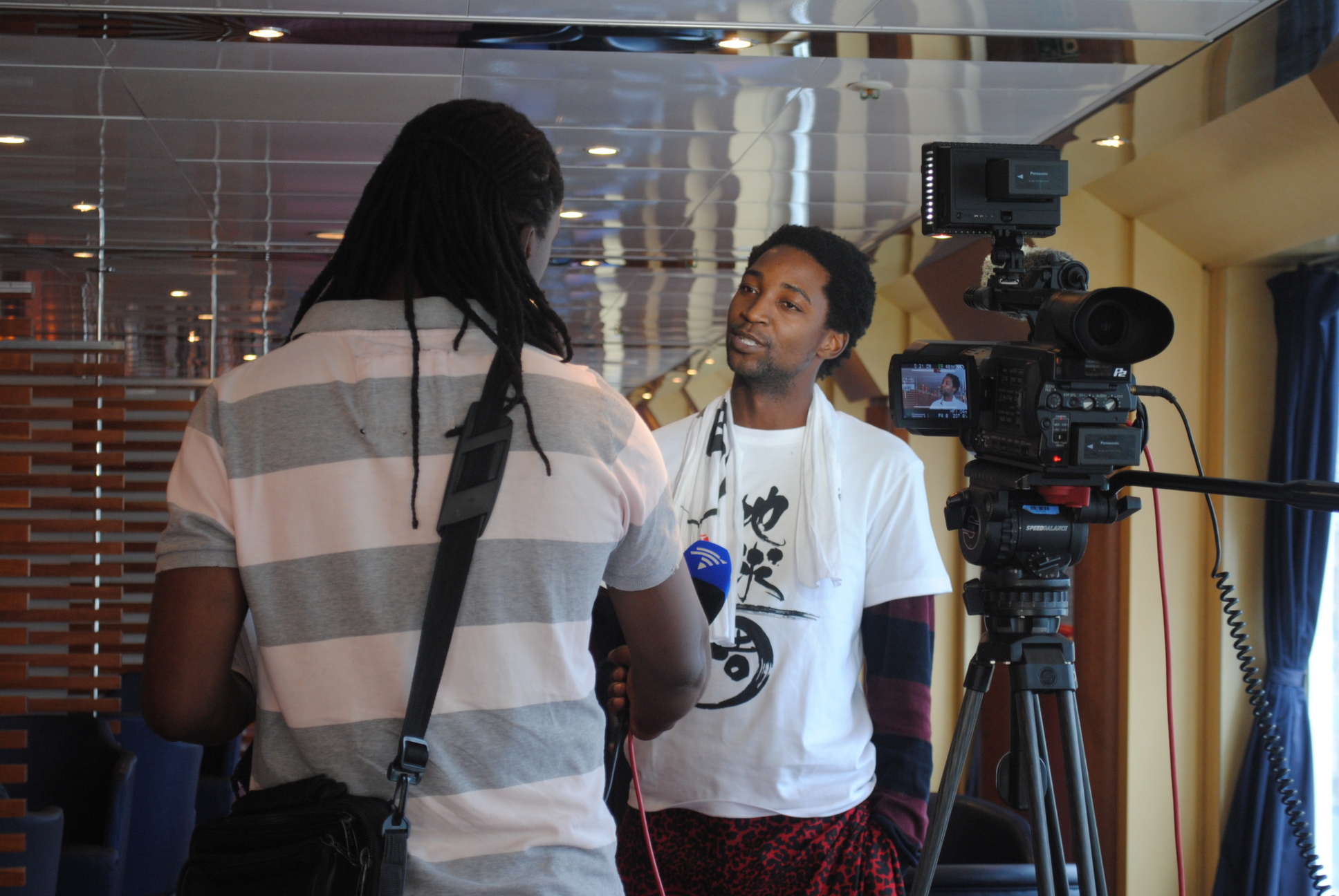
Conclusion
Throughout the programme, participants were reminded that learning in itself does not create a significant impact; in order for this time to be well-spent, the participants must actually apply what they have learnt in real-life situations. In other words, there must be tangible outputs and outcomes that result from this experience in order for it to be considered a success.
In order to ensure coordination, communication and collaboration after disembarking from the ship, the participants formed the “Africa Resilient Youth” (ARY) group.
Armed with knowledge, resources, and a new international network, these young leaders are eager to make an impact, and have created both group and individual action plans to implement after returning home. Read the “Ocean Dream Declaration”, a summary statement and group plan of action that the youth leaders have committed to, here. 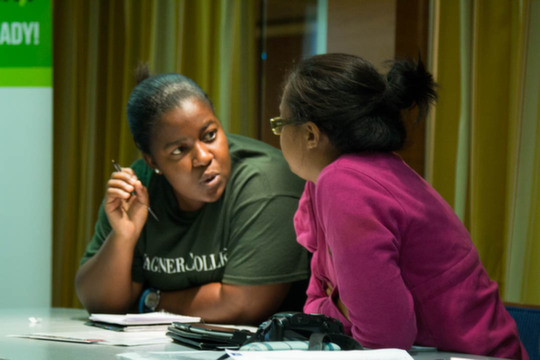
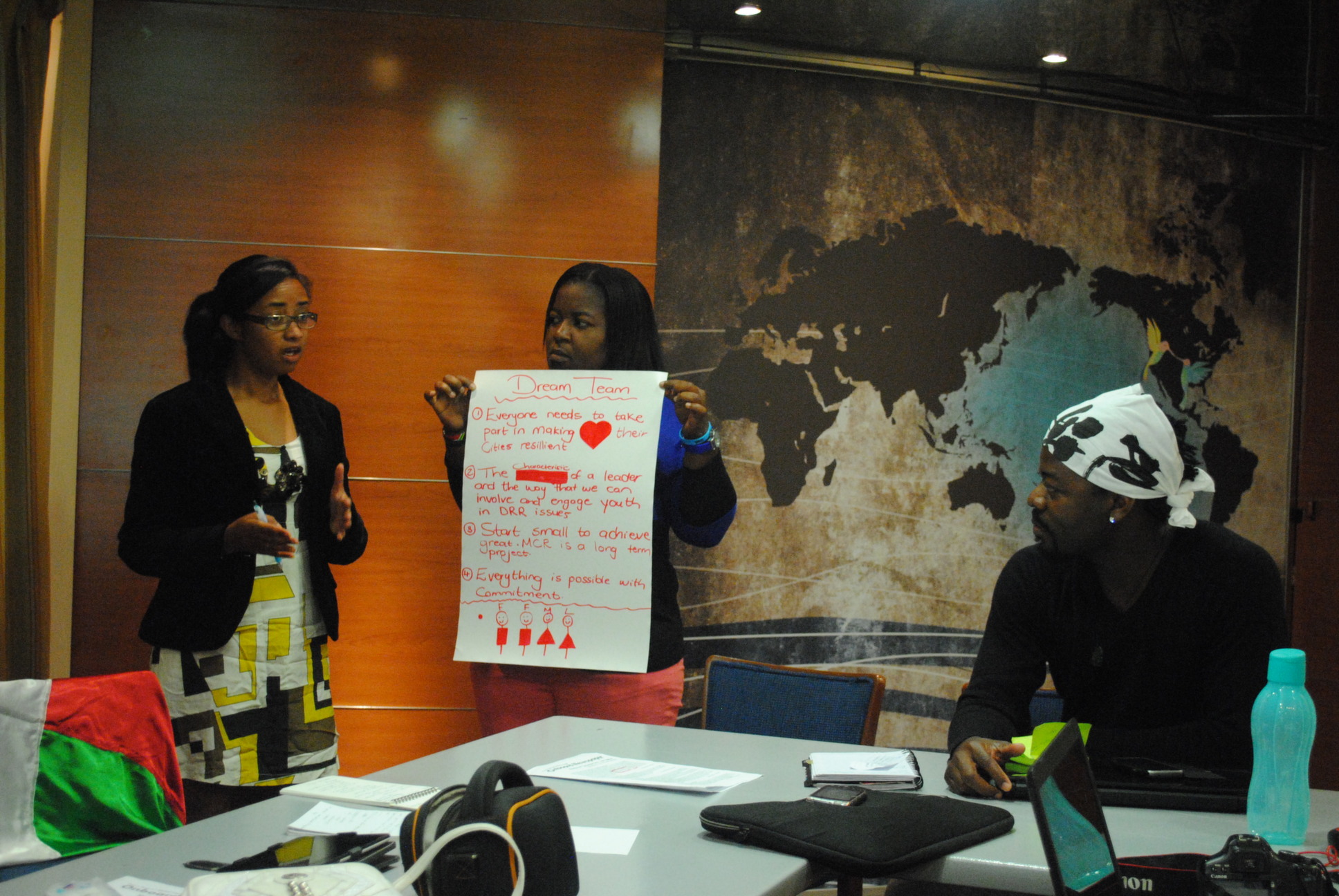
With the support of UNISDR, the programme participants were able to explore some of the most pressing issues in Disaster Risk Reduction and identify ways in which youth can take a leading role in making communities more resilient.
There is a saying in Mozambique that goes “there is nothing for us, without us”.
If building resilience is for the benefit of future generations, then young leaders must be a part of the conversation.
As we approach the 3rd UN World Conference on Disaster Risk Reduction in Sendai and the establishment of the post-2015 framework on DRR, we hope that these youth will continue to make an impact and help achieve resilience at all levels of society.
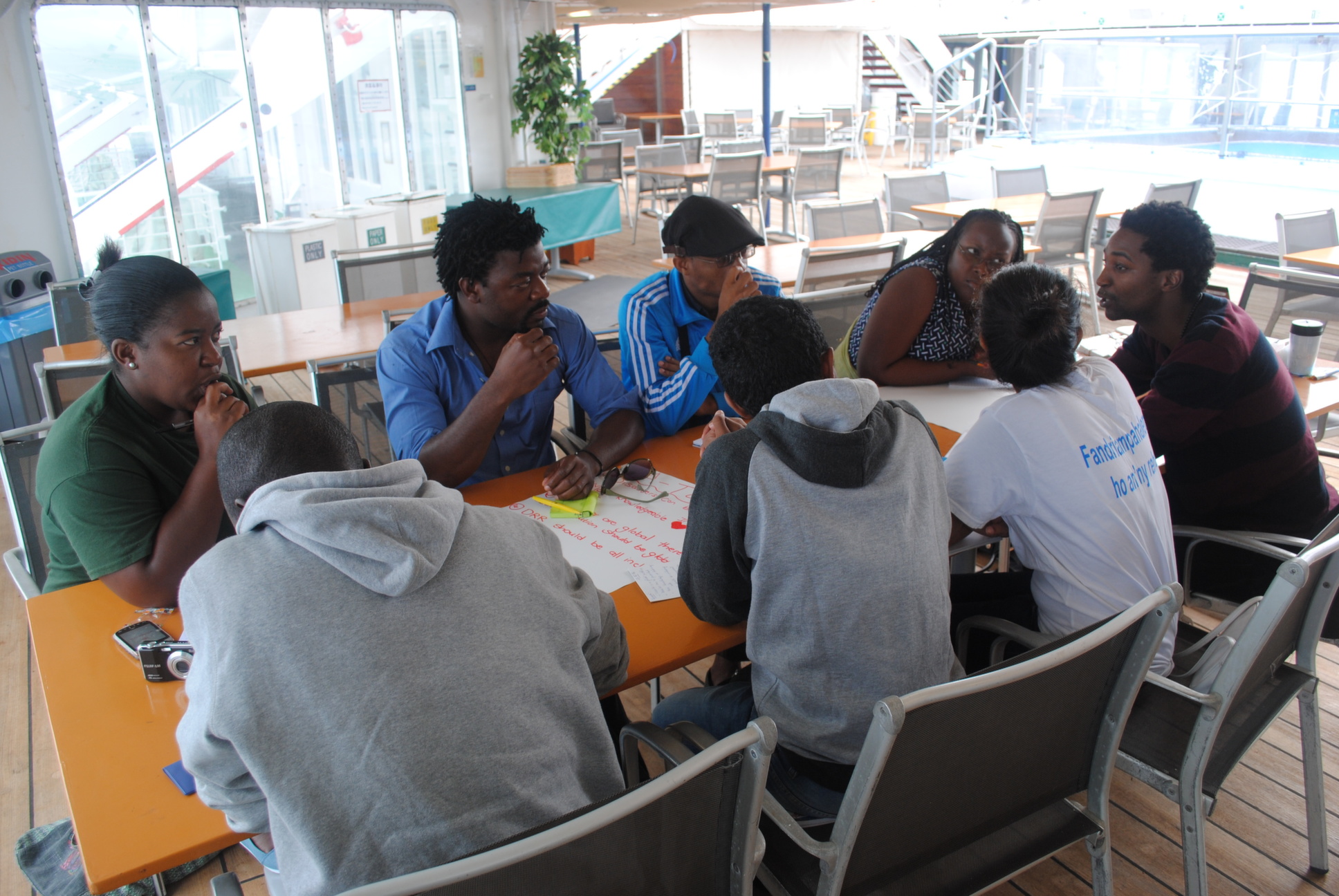
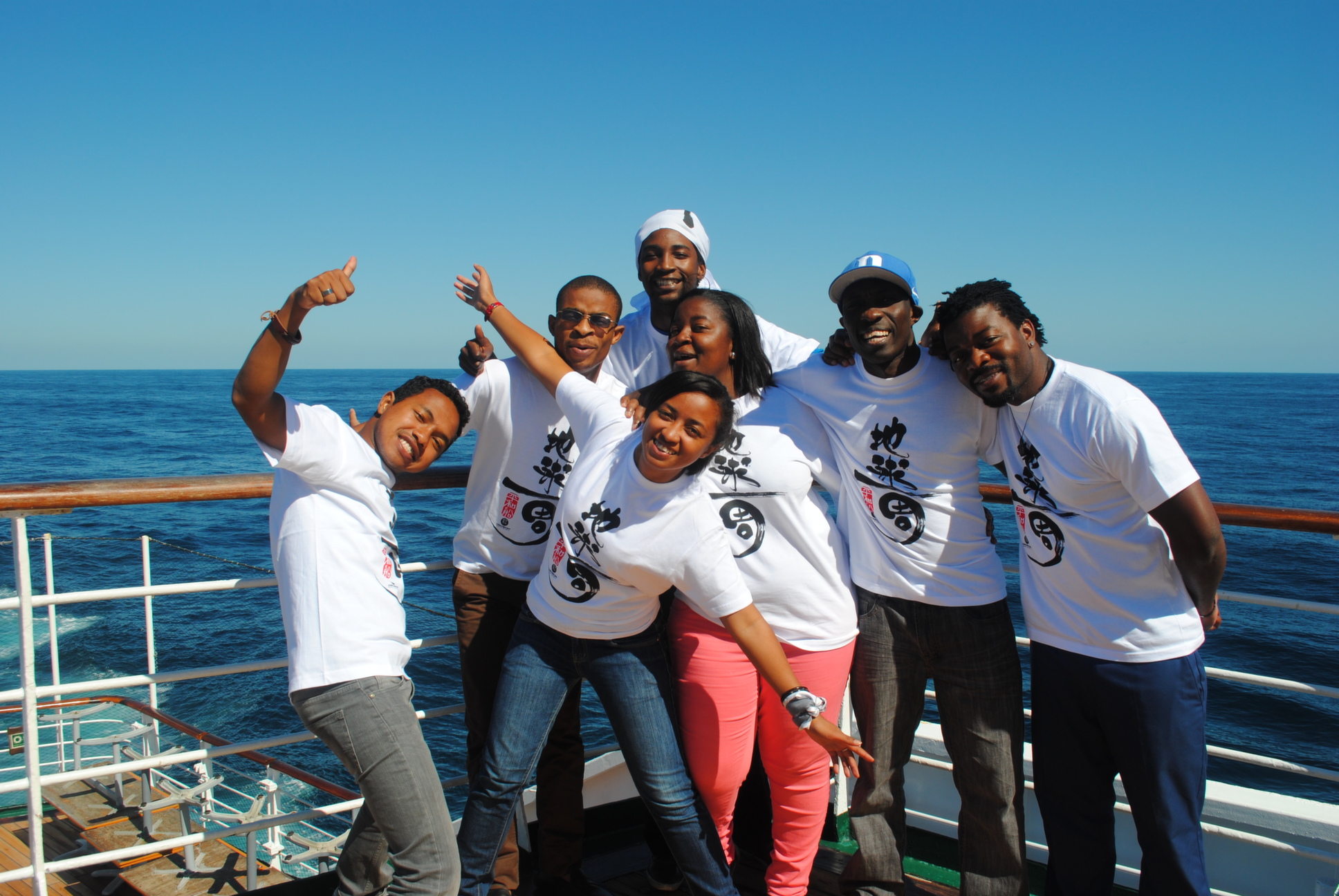
About Peace Boat, UNISDR and the “Making Cities Resilient” Campaign
As a partner for the UNISDR’s “Making Cities Resilient” campaign, Peace Boat has committed to serving the campaign as:
– a Messenger, with its physical presence able to raise awareness in the ports we visit
– a Venue for delivering education and training programmes, and
– a Vehicle to bring people and expertise to different regions of the world.
See here for the full UNISDR article.


